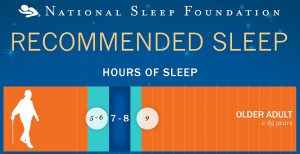THE TOP 4 REASONS TO PRIORITISE QUALITY SLEEP.
The return from quality sleep.
Maintain,
😴 Optimum immunity - fewer illnesses.
😴 Prime hormonal balance - mentally & physically.
😴 Best brain function - clarity & focus.
😴 Metabolic & Appetite balance - endless energy & ideal weight.
TYPICAL HEALTHY SLEEPING NUMBERS PER WEEK.
Usually, 6-7 hours of mostly unbroken, five-phase sleep are necessary for good quality, nutrient-rich sleep.
5–7 nights of wholesome sleep each week are necessary to maintain good health.
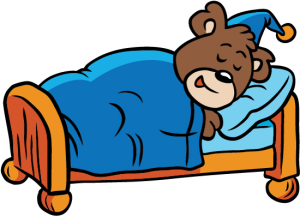
THE NATIONAL SLEEP GUIDE ON SLEEP VOLUME.
How much sleep do the experts suggest you need?
Well, it depends!
Age, activity, genetics, environment, mental strain & stress, can all determine one's optimum rest time.
And, of course, it can change from day-to-day.
However, the National Sleep Foundations 'general' guide provides a good reference.
Click below for the full report.
WHAT IS YOUR CHRONOBIOLOGY? ARE YOU A LION?
Interestingly, the work of world-renown 'Sleep Doctor', Dr Michael Breus, suggests people fall into one of four chronobiology when it comes to their ideal circadian rhythm.
Dr Breus studies suggest the world's population fall into defined categories:
🐬 Dolphins: 10%
🦁 Lions: 15-20%
🐻 Bears: 50%
🐺 Wolves: 15-20%
Ultimately, while most of us are 'Bears', it's wrong to believe everyone will perform their best bouncing out of bed, hammering away till 3 pm, then, start unwinding mentally & physically and be tucked up ready for 8 nutritious hours of sleep from 10 pm.
Click to determine 'your' chronobiology type;
THE LEADING REASONS FOR POOR SLEEP!
In no particular order;
😩 Mental & emotional stress.
😩 Little direct sunlight, particularly the first thing in the morning.
😩 Little physical activity.
😩 Elevated body temperate later into the evening (late exercise, warmer weather, hot showers).
😩 Alcohol later in the evening causes an increasing body temperature - 3 hours post-consumption.
😩 Bedroom blue lights (electronics, phones, etc).
😩 Snoring (personally & partner).
😩 Dust mites.
😩 The adaptive period from the keto nourishing model.
😩 Changes in altitude.
TYPICAL SIGNS & SYMPTOMS OF SLEEP DEPRIVATION
Typical Signs of Sleep Deprivation.
🥱 Amplified cortisol and other stress hormones - driving change in behaviour.
🥱 Weakening & vulnerable immune system - undermanned T-Killer cells activating cold & flu.
🥱 Appetite Imbalance - namely; insulin imbalance leading to poor pick-up choices.
🥱 Increased inflammation - hello annoying joint and tendon niggles.
🥱 The decline in thermoregulation – namely, cold extremities.
Does this sound familiar?
❎ Reduced cardiovascular output (reduced fitness).
❎ Reduced muscular strength (slumping posture).
❎ Depressed (reduced management of challenges).
❎ Intolerant and easily angered.
❎ Respond to stress with little thought.
❎ Lowered sexual interest.
❎ Increased interest in sugar hits.
❎ Sniffling or irritating head colds.
❎ Require caffeine to function.
❎ Flakey skin & dry lips.
❎ Sore eyes around 3 pm.
❎ Low interest in exercise.
❎ Warm temples and oily scalp.
❎ Annoying joint or muscle niggles.
❎ Weight gain around the belly.
❎ Upper-respiratory infections, namely, athletes.
THE 5 SLEEP PHASES.
Phase 1 - 5-15 minutes
◦ Light Sleep and still aware of a presence.
◦ While nerves are starting to down fire, it's common to experience the odd neural jolt, or kick!
◦ Airways are still very much open and snoring is unusual.
Phase 2 - 5-15 minutes
◦ First a drop in body temperature and heart rate.
◦ Eyes stop moving and brain waves are transitioning to delta waves.
Phase 3 - 3 hours
◦ Brain waves switch solely to Delta waves resulting in a deep sleep.
◦ Postural muscles loose integrity as nerves switch off.
◦ Phasic (breathing muscles) also reduce firing resulting in some people subconsciously searching for air - enter; snoring.
◦ Body repairing starts while building speed towards phase 4.
Phase 4 - 3 hours
◦ Much the same as Phase 3, only more pronounced.
◦ Body temperate drops further still.
◦ You should find it difficult waking up during these phases.
◦ Should you find yourself waking up in Phase 4 - 'Consider the Dream On Project'
Phase 5 - 1 hour
◦ Rapid eye movement and likely a time for dreams.
◦ You'll now start to move around a little.
◦ Fat burning will start to slow with the introduction of blood sugar.
◦ Finally, cortisol will now be reintroduced and we start again.
THE HEALTHY 24HR CIRCADIAN RHYTHM.
6 am
⁍ 6 am marks the release of the hormone cortisol, which triggers your brain and body into action.
⁍ The 'fight & flight stress response produces cortisol, and while an extended production of cortisol can lead to ill health, a minor, timely hit is critical.
⁍ Along with cortisol, another essential wakening hormone, Vasoactive Intestinal Polypeptide (VIP), sparks into gear, increasing heart rate, breathing rate, blood vessel widening, and, importantly, driving glycogenolysis. This process amps up a much-needed spike in blood sugar, charging up your action for the day.
⁍ VIP also promotes bowel movements at this time of day, being best for such practice.
⁍ I've found about 300mg of magnesium, and a strong black coffee (about 150mg of caffeine) does the trick should your pipes be somewhat unresponsive.
8 am
⁍ Between 7 -8 am, your body should receive a hit of the hormone ghrelin.
⁍ Ghrelin is responsible for making you feel hungry. Consuming a 'nutritious' breakfast can help in resetting your circadian clock. However, the influence of fasting can also produce re-establish good gut health and reboot a normal CR.
⁍ Key point; Ignoring the feelings caused by ghrelin will likely mess up your metabolic & sleeping cycle later in the day.
⁍ Sleep deprivation will also drive up ghrelin. Meaning tiredness drives hunger, and usually, for all the wrong choices [namely, sugar & trans fat].
⁍ A fitting breakfast will assist in healthy nighttime sleep.
⁍ Importantly, exercise, performed at 'your' relative 60-70% of max sustainable effort, for most people, is best at this time. Pushing over one's current fitness level will influence sub-optimal appetite, hydration, and, ultimately, metabolism, affecting nighttime sleep quality.
⁍ The optimal time of day for 'harder' athletic sessions is between 2-5 pm, that is, for those appropriately conditioned. The body sits at an ideal temperature, with optimal blood flow and excellent mental tolerance for more strenuous effort.
9-10 am
⁍ Here comes the sun - direct sunlight is now King in activating your healthy best circadian rhythm.
⁍ As little as 5 minutes will drive a perfect balance of cortisol & serotonin, which control much of a ticktock circadian clock.
⁍ Typically, one's mood, behaviour, and attitude dip on shorter winter days.
⁍ Coffee, green tea, and adaptogenic herbs can mimic 'some' of the sun's good influence.
⁍ Europeans are now using a device called The Human Charger (15 minutes a day), which sends light through the ear towards the brain.
10 am
⁍ Sex hormones peak, which seems an odd time of the day, but hey, if it's on, it's on!
⁍ It's important to note a healthy circadian rhythm promotes a beneficial sexual interest.
⁍ So far, if you've exercised at a controlled intensity, grabbed a few rays, visited the bathroom, and perhaps got lucky! You're on a 'circadian' course for great sleep.
11 am - 2 pm
⁍ You're now on high alert. Concentration is at full tilt.
⁍ Alpha Waves, neural oscillations, drive mental clarity.
⁍ Now is the time to write your #1 hit song.
⁍ Performing your most complex intellectual tasks should be performed now!
⁍ Save all your easy stuff for later in the day.
2 pm
⁍ Around 2 pm signals your peak muscle reaction, coordination & balance time.
⁍ Nerves are firing best, muscle, tendon & ligament temperature is optimum, and brain waves are still sharply ranging between alpha & theta.
5 pm
⁍ Around 5 pm marks your optimum cardiovascular efficiency, best body temperature, muscle repair, protein synthesis, and workout-recovery capability peak. For elite well-conditioned athletes, this is an even better time of day to exercise, especially if your workout is intense.
⁍ However, for those less conditioned, exercising at this time, particularly in the warmer summer months, can prevent the adequate body cooling required for optimum sleeping conditions.
⁍ I recommend a minimum of 4 hours of post-evening training sessions before hitting the sack - for best sleeping conditions.
6-7 pm
⁍ With the sun setting, you can expect your blood pressure to be at its highest. The resting heart rate is highest, and blood vessels restrict. So, in the event of a frustrating 5 pm meeting, don't test your blood pressure!
⁍ Sunset also promotes the hormone leptin. Leptin's job is to break down stored body fat, and this fat provides energy for the next 12 hours - including sleeping time. The role of leptin is to prevent hunger pangs as you sleep.
⁍ It is essential to note; Nighttime (blue) lights and a big heavier meat-based evening meal can limit leptin release - and, thus, disrupt optimum sleep (and metabolism). Also, late-night (sugary) snacks with your head slapped against a bright screen are a nightmare of the circadian rhythm.
⁍ The fructose factor; Some fruits, like Kiwi fruit, are loaded with fructose (natural sugar), and consumed in the evening will help your sleep. You should feel sleepy about 20 minutes after consumption, and adding fructose won't disrupt insulin or leptin enough to influence poor sleep. A little fruit just before bedtime is typically a good idea.
⁍ Leptin should continue to elevate, suppressing your appetite and ripping into your fat reserves until 3-4 am.
⁍ I also found 200mg of magnesium before bed contributed to fat loss and better night sleep.
9 pm
⁍ Around 8-9 pm, your body temperature will be at its highest - pending exercise! This is why, classically, (heavier) males kick bed linen but blanket hog in the early hours of the morning.
⁍ You should experience heavy-set eyes sometime between 9-11 pm.
⁍ This is the hormone melatonin kicking into overdrive.
⁍ Melatonin slows the heart rate, lowers adrenalin & cortisol, lowers blood pressure and body temperature, and should shut down your gastric system. The last thing your circadian rhythm needs during sleep time is broken with bathroom stops.
11 pm
⁍ Around 11 pm, leptin should crank up, so if you'd like to reach your ideal weight, be asleep when Santa rocks up.
⁍ Around 12-1 pm, melatonin should shut down the brain, allowing for optimum sleep. Increasing delta brainwaves should be driving the sleep phases 3-4. This is key towards top rest and recharging.
⁍ 1-2 am should see the boost in HGH (Human Growth Hormone) central. HGH is responsible for repair. No deep sleep - no repair - this is a problem.
2-5 am
⁍ Between 2 am - 6 am, your core temperature falls most drastically.
⁍ This is the time for ultimate neural rejuvenation, which can sometimes present muscle cramping (typically in the calves and feet). A pinch of Himalayan salt in the water before bed can help.
⁍ Perhaps most importantly, around 3 am, your T cell [killer cells] gain strength and numbers. This is key for continued immune wellness.
⁍ Also, this is the time your anti-inflammatory system kicks into overdrive. If you're carrying an injury, you want to be asleep at this time.
⁍ Around 4 -5 am, your body's core temperature is at its lowest. Prepare for this time with additional blankets etc. You don't want to miss out on this ultimate sleep-driven repair time.
⁍ Cortisol starts kicking in around 5.30 am, which raises your temperature, and bingo, you start again.
-
🗹 Your alarm wakes you 30 minutes earlier than is usual.
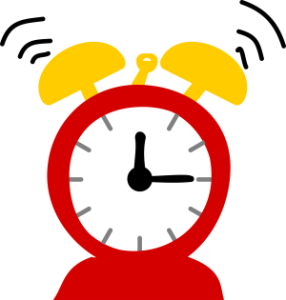
⏰ We are prompting back end-of-the-day tiredness.
⏰ The earlier you wake, the better - clearing residual melatonin.
⏰ Your exercise attire is set out and ready to go.
⏰ No first-thing-waking screen time.
⏰ The less time from waking to moving (exercising), the better.
🗹 Early morning activity.
🏃🏽 Blood flow, endorphins & body warming - you gotta get moving.
🏃🏽 Forward movement at an easier conversational effort.
🏃🏽 Walking & Running is ideal. However, all action ticks the box.
🏃🏽 Ideally, choose your favourite pick-me-up tunes. The louder, the better.
🏃🏽 Finish with a few bodyweight strength exercises (CLICK) & fitting stretches (CLICK).
🏃🏽 Given its practicality, ground yourself by walking barefoot on grass for 5 minutes.
⏰ If you exercise regularly, extend your normal session by 20 minutes - but don't blow the doors off - see DTI best intensity calc (CLICK)
☀️ Combining movement with direct sunlight (free from sunglasses) is best.
🏃🏽 Complete the morning session with one glass of water + nuun hydration (mineral) supplement (CLICK)
🗹 Shower down.
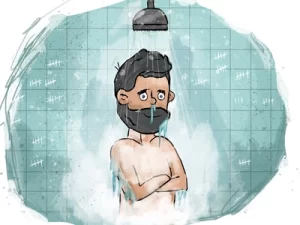
🥶 Complete your shower with 10 seconds of cold water - yes, the hot tap is tight shut.
🥶 We're promoting a thermo-regulating zap - warming you up for the day. yes, the cold zap warms you up, not down.
☀️ Early morning body warming and evening cooling are best for optimum CR and prime sleep.
🗹
BreakFast, including coffee.☕ Give your gut a break, extending your natural fast to 17/24hrs.
☕ If you need to eat, particularly if you exercised heavily, choose protein & healthy fats over all carbohydrates.
☕ Include your morning coffee, tea or herbal tea - zero sugar. A little caffeine is a likely positive CR rebooting strategy.
ℹ️ coffee: caffeine can block melatonin and carries a half-life of 12 hours. So, best limit caffeine to one brewed cup @ 150mg and consumed before 9 am, only.
☕ I recommend adding 1 tsp MCT oil (CLICK) to your morning drink.
☕ A tea of herbal tea is also a good choice.
🗹 Wash bed-linen.
🛏️ Wash & dry all bed linen, pillow undercover included.
☀️ Ideally, mattress & pillow airing in sunlight is best.
🪲 Bed mites disrupt the best sleep - kill them with vitamin D.
🗹 Food for the day.
🥗 Lighter & cleaner food choices, e.g. garden salads & protein.
🚫 Avoid all refined sugar.
🗹 Daily de-stress.
🧘♀️ Box breathe throughout the day (CLICK)
💺 If you're desk-bound - Desk stretch set (CLICK).
📶 Take the stairs - moving regularly.
😰 Dissociating from daily stress is critical towards sound sleep.
🗹 Dinner.
🥬 Loads of veg, including complex carbs, e.g. spuds, sweet potato, & fitting grains, matched with lighter protein choices like fish & eggs.
🚫 Avoid heavier protein & sauce-based choices.
🚰 Hydrate with a further nuun tablet & water - non-caffeinated.
🗹 Zero alcohol.
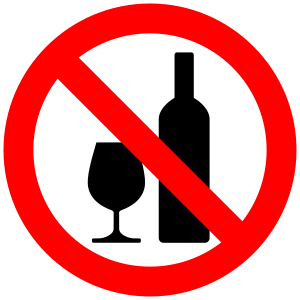
🚫 Unfortunately, alcohol metabolism will likely increase body temperature 3-5 hours post-consumption.
💤 To get a good night's sleep, the body temperature must be gradually lowered until it is almost rising.
🗹 Bedroom set up.
🛌 After bedding, block all-natural light and electronic blue lights.
🛌 If possible, some natural air flow is best.
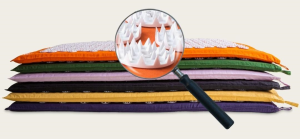
🛌 Bed with a lighter covering; however, position heavier covers close by.
🛌 Consider a weighted blanket, which data shows can help sleep comfort - CLICK.
🛌 Att, hotter sleepers, check out the bed cooler - CLICK.
🛌 Before settling in bed, I recommend lying on the shakti (lotus) mat for 10 minutes - while listening to soothing white noise - CLICK
🗹 While in bed.
✅ Read - HARD COPY.
✅ Back-end unlit reading promotes melatonin.
✅ With heavier melatonin-influenced eyes, listen to rain sounds for 5 minutes - CLICK.
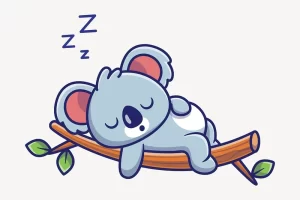
✅ The sound of rain promotes body cooling and further melatonin.
✅ Also, consider 20 mins of the free 'sleeping' App, PZIZZ, CLICK.
✅ Consider ( and consult) 1 tablet of Valerian Forte (Blackmores) CLICK - a natural sleeping supplement.
✅ Try blocking ears with blue tak - a far better choice than conventional earplugs.
👃 fyi; the health (and sleeping) benefits of nose breathing throughout the sleeping period are well documented.
👃 I taped my mouth with 3M microtape for two months. Now, default nose-breathing (free from taping) has improved my sleep considerably. Gone are the dry throats and frequent broken sleep.
ℹ️ - Alcohol & sleeping aid (prescribed & OTC) may well drive sedation, but this does not assure 5-phase natural deep sleep.
ℹ️ - If you find it difficult to fall asleep or back to sleep, CONCEDE, get up, walk around (don't eat), read or stretch, and try again.
Good night!
You'll wake refreshed and recalibrated.

